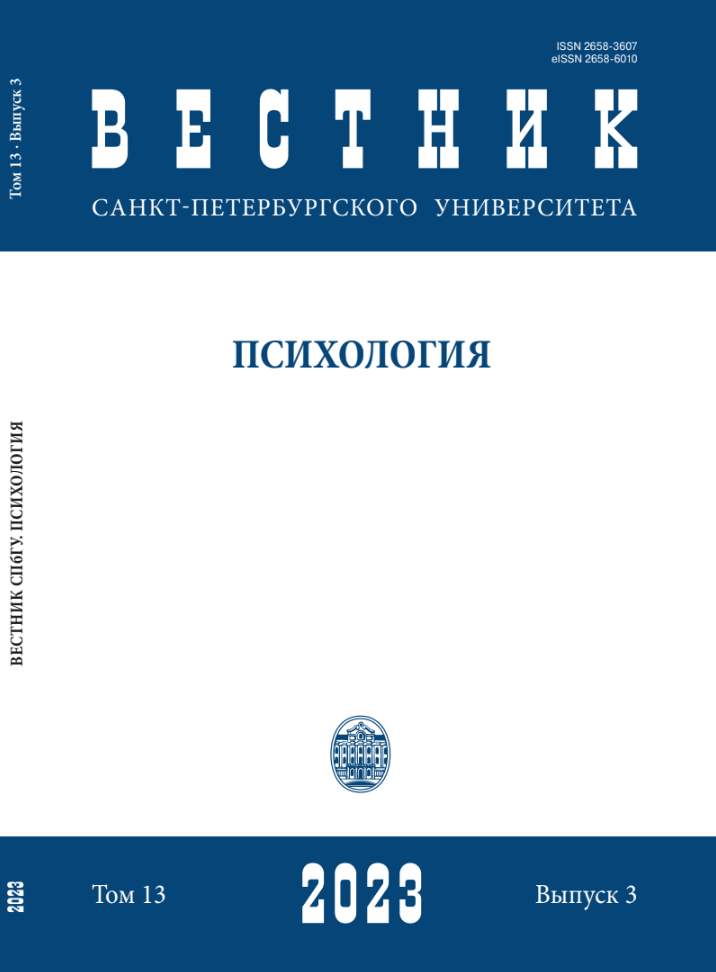Psychosomatic and behavioral reactions at competitions in female gymnasts 4–10 years old raised in families with different upbringing styles
DOI:
https://doi.org/10.21638/spbu16.2023.308Abstract
Rhythmic gymnastics is a complex coordination sport with early professionalization. The specifics of sports training and competitive situations from a young age are accompanied by highintensity physical and emotional loads, which are stressogenic factors. Frequently repeated situations of neuropsychological stress can lead to emotional stress, which increases the risk of psychosomatic reactions. Some features of family upbringing observed in the families of athletes can increase the risk of psychosomatic reactions. The article is devoted to the study of the relationship between psychosomatic reactions in a competitive situation in young gymnasts 4–10 years old with the features of family upbringing style, the identification of predictors of psychosomatic reactions in a competitive situation. The sample of the study consisted of 44 families with female gymnasts 4–10 years old. The study was conducted with the use of methods by E.G.Eidemiller ASV, E. S. Schäfer PARI, R.K.Bell, author’s questionnaires “Parent/Trainer’s perceptions of the child’s experience of the competition situation”. Mathematical processing of the data included descriptive statistics, Correlation, Single Factor Variance, Factor and Regression analyses. Psychosomatic and behavioral responses to competition were found to differ among gymnasts raised in families with different family upbringing characteristics. It was found that irritability of the parent, irascibility, avoidance of contact, the desire to accelerate the child’s development, superauthority of the parent and some other features of family upbringing style are associated with increased neuropsychological excitement, the emergence of emotional stress. Family parenting style features such as hyperprotection and emotional distance with the child are prevalent in families of gymnasts 4–10 years old. The irascibility, severity, lack of parental acceptance and desire to change their child increase the nervous and mental agitation of young gymnasts in competitive situations. In competitive situations in female gymnasts 4–10 years old, overauthority of the parent, excessive severity, avoidance of contact and projection of undesirable qualities onto the child are predictors of gastrointestinal disturbances.
Keywords:
psychosomatic reactions, family upbringing style, predictors of psychosomatization, psychological assistance to athletes, child and youth sport
Downloads
References
References
Downloads
Published
How to Cite
Issue
Section
License
Articles of "Vestnik of Saint Petersburg University. Psychology" are open access distributed under the terms of the License Agreement with Saint Petersburg State University, which permits to the authors unrestricted distribution and self-archiving free of charge.




